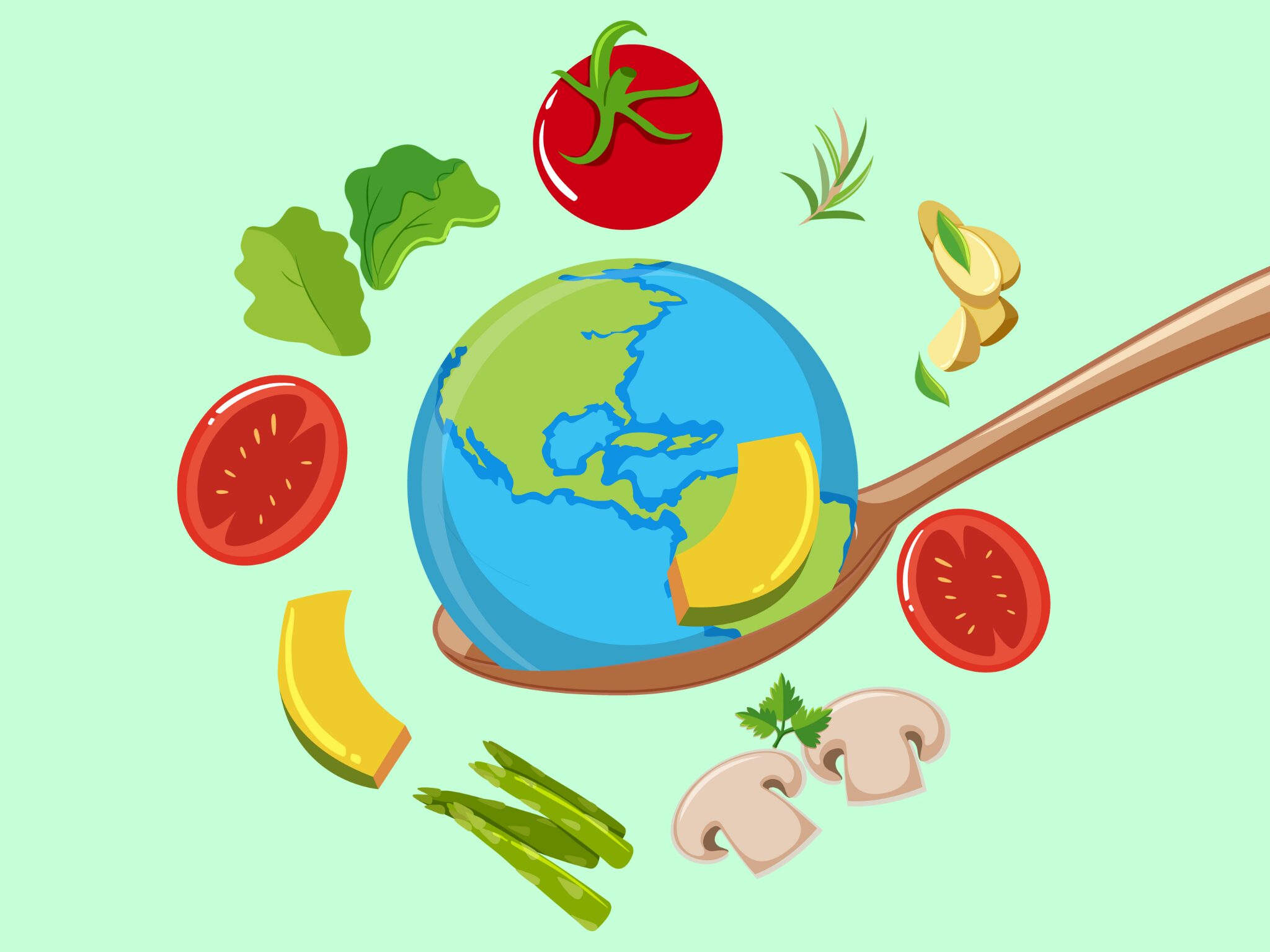Flexitarian Diets Can Reduce Emissions & Help Meet 1.5°C Climate Goal: Study
5 Mins Read
Certain dietary shifts can bring carbon benefits, according to a new study, which notes how plant-heavy flexitarian eating patterns can reduce greenhouse gas emissions (especially methane) and help the planet meet its 1.5°C goal.
There has been tons of research outlining the impact of food systems on climate change. For starters, this industry accounts for a third of global greenhouse gas emissions, and meat alone makes up for 60% of that share – twice that of plant-based foods.
Studies have consistently shown that livestock farming is bad for the planet, responsible for 11-19.5% of all emissions. Vegan diets, meanwhile, can reduce emissions, water pollution and land use by 75% compared to meat-rich eating patterns.
But only a small percentage of people globally identify as vegans or vegetarians. For many, the demographic key to a protein transition are flexitarians, who make up anywhere between 25-42% of the world’s population, according to estimates. The idea of flexitarianism – according to EAT-Lancet’s Planetary Health Diet – involves reducing meat consumption, eating more plant-based foods, preferring unsaturated over saturated fats, and restricting highly processed food and added sugar intake.
A new study published in the Science journal envisions a future based on three scenarios: one is based on nationally determined contributions (NDCs) for emissions reduction, another includes these NDCs alongside policies compatible with the 1.5°C global heating goal, and the final one adds a dietary shift towards flexitarianism by 2050 to the mix. The latter could have huge benefits for the planet, according to the research.
The climate benefits of a flexitarian diet

The study notes how current national climate policies are insufficient, pushing global temperatures 2.2°C above pre-industrial levels by the end of the century. But dietary shifts, alongside complementary policies like emissions taxes, could actually help us limit peak warming to 1.56°C by 2045, and that too with less carbon removal than a model based on our current diets.
A shift towards fewer animal products and taxes on greenhouse gases could reduce agriculture, forestry and other land use (AFOLU) emissions by 96% by 2100, in contrast with a future based on current NDCs. Highlighting the importance of flexitarianism, the report notes that dietary shifts combined with emissions taxes roughly double the AFOLU emissions reductions compared to an approach only leveraging these taxes.
Dietary transitions also relieve pressure on scarce land resources, which brings about a decrease in agricultural land use, and less intensification on remaining agricultural land. Plus, methane and nitrous oxide emissions from agriculture are slashed too, as is the impact of food production on water, nitrogen and biodiversity.
This, in turn, could bring down the economic costs related to human health and ecosystem degradation, and reduce the cost of mitigating carbon emissions by 43% in 2050, compared to a case without dietary change.
“A shift toward healthy diets would not only benefit the people, the land and food systems, but also would have an impact on the total economy in terms of how fast emissions need to be reduced,” said Florian Humpenöder, one of the study’s authors and a senior scientist at the Potsdam Institute for Climate Impact Research.
Red meat taxes and consumer education key to meeting 1.5°C goal

Meat taxes have been discussed in multiple countries over the years, but policymakers have found it hard to implement them for a variety of reasons. The researchers argue that the demand for food is inelastic to price changes – essentially, the demand remains constant even with higher costs – and that existing estimates on food markups would require enormous tax rates to achieve planet-positive dietary shifts.
This means that meat taxes won’t necessarily drive up food prices so high that people are encouraged to change their eating habits. To mitigate this problem, the study suggests a high tax on beef and lamb only, which (along with dark chocolate) are the foods linked to the highest emissions.
Another promising policy instrument is to change food environments or target consumer preferences – this includes food provision in canteens, food distribution schemes, ad bans, education and nutritional counselling. A separate review has found that informing consumers about the climate, health and animal welfare aspects of diets can effectively reduce meat intake, and the researchers here note that a shift towards a 1.5°C-compliant diet could be amplified in fact-based messaging.
The study outlines concerns about job or income losses in upper-middle- and high-income countries when fewer livestock products are consumed, pointing to the importance of social inclusion and compensation schemes for a just transition. But while healthier diets are 22-34% cheaper than current eating patterns in these countries, they’re actually 18-29% more expensive in low- to lower-middle-income nations. Here, such a shift is only achievable if combined with transfer payments or revised food distribution schemes – in fact, vegetarian and vegan healthy diets would remain more affordable than flexitarian diets in these regions.
Finally, while taxing meat would increase expenditure on food, dietary shifts offset that by reducing spending due to lower demand for resource-intensive animal-based products. “It’s important to stress that flexitarian is not vegetarian and not vegan,” said Humpenöder. “It’s less livestock products, especially in high-income regions, and the diet is based on what would be the best diet for human health.”
“The overall food system has many players,” added Jason Hill, a bioproducts and biosystems engineering professor at the University of Minnesota, in a statement to the Guardian. “There’s the producers, the consumers who choose what to eat, and in the US especially, the government, which supports the type of agriculture that leads to excess production of red meat.”
He continued: “This paper further confirms what other studies have shown, which is that if we change our diets to a more flexitarian type, we can greatly reduce greenhouse gas emissions.”




